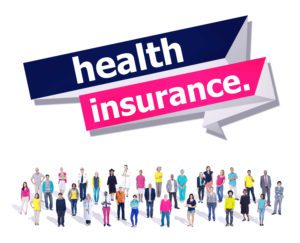

Individual and Family Coverage
Individual and family health plans are policies that members buy on their own rather than through an employer, whether because they are self-employed, work part-time, or work for an employer that doesn’t offer medical benefits. These plans can be purchased on a federal or state ACA exchange or directly from a health insurance carrier. Here are the regulations that plans sold on the individual market must follow:
- All plans are guaranteed-issue during the annual open enrollment period, a special enrollment period, or following a qualifying life event, meaning that the insurance company cannot deny you coverage.
- All pre-existing conditions are covered from day one of the plan.
- The carrier can only use your age, location, tobacco use, and the number of family members on your plan to determine your premium. Older enrollees can only be charged up to three times what the company would charge a 21-year-old.
- Policies must cover all 10 essential benefit categories outlined by the ACA, including prescription drugs, mental health care, preventive care, and maternity care. There must be an out-of-pocket maximum on in-network care to control costs for the policyholder.
- Carriers cannot impose annual or lifetime coverage limits on any service included in the 10 essential benefits.
- Young adults can remain on a parent or guardian’s plan until age 26.
- Carriers must spend at least 80% of premiums on medical care and quality improvements that benefit policyholders.
Small-Group Coverage
In most states, small group means that the employer has up to 50 employees (or up to 100 employees in California, Colorado, New York, or Vermont). The rules for ACA compliance in the small-group market are essentially the same as those governing in the individual market:
- Small businesses can purchase medical plans for their employees at any point in the year, and carriers cannot turn them away. (However, if they don’t have enough participants or don’t meet required employer contribution amounts, they can only purchase coverage during annual open enrollment in the fall.) Employees can join when they’re initially eligible, during open enrollment, or when they experience a qualifying life event.
- All pre-existing conditions are covered from day one of the plan.
- Carriers can only base the group’s premiums on employees’ age, location, tobacco use, and the number of enrolled dependents. They cannot penalize the business for employees’ health conditions.
- Policies must cover all 10 essential benefit categories outlined by the ACA, including prescription drugs, mental health care, preventive care, and maternity care. There must be an out-of-pocket maximum on in-network care to control costs for the policyholder.
- Policies cannot impose annual or lifetime dollar limits on any essential health benefit.
- Young adults can remain on a parent or guardian’s plan until age 26.
- Carriers must spend at least 80% of premiums on medical care and quality improvements that benefit policyholders.
Large-Group Coverage (Including Self-Insured Coverage)
Employers with 51 or more employees (or 101 or more employees in California, Colorado, New York, or Vermont) can purchase coverage in the large-group market.
Many mid-size employers (about 51-500 employees) purchase fully insured coverage from a carrier the same way smaller businesses do. However, many very large employers (especially those with thousands of employees) choose to self-insure, with the insurance carrier acting only as an administrator and network provider. Large group plans, including self-insured plans, must still comply with ACA regulations. However, self-insured plans (including level-funded plans) follow the large group rules, even if the business has fewer than 50 employees.
The ACA regulations that apply to large-group and self-insured plans are not exactly the same as those governing individual and small-group health plans. For large-group and self-insured plans, ACA compliance means:
- Businesses can purchase plans for their employees at any point in the year, and carriers cannot turn them away because of employees’ ages or health concerns. Employees can enroll when they’re first hired (or when they first convert from part-time to full-time), during the company’s annual open enrollment period, or if they experience a qualifying life event.
- All pre-existing conditions are covered from day one of the plan.
- Policies must cover 60% or more of the healthcare costs for a standard employee population. Plans must meet an affordability threshold for employees (but not necessarily family members); the employer risks a fine of their coverage is not deemed affordable.
- Policies must fully cover certain preventive care services with no copays or coinsurance. They don’t necessarily have to match the 10 essential benefits that individual small-group plans must, but most large groups cover them anyway. There cannot be any annual or lifetime limits on any essential benefit categories a large-group plans does include.
- Large-group plans must also have out-of-pocket maximums to control costs to employees.
- Young adults can remain on a parent or guardian’s plan until age 26.
- Large-group plans must spend at least 85% of premiums on medical costs and quality improvements the benefit policyholders, but this doesn’t apply to self-insured plans.
We proudly insure the residents of Chicagoland and the entire United States. We can provide coverage from many insurance carriers so you can offer medical plans that fit your budget and needs. Still have questions on ACA-compliant coverage? Contact one of the benefits advisors at Kamm Insurance Group to review your information and determine the solution to your benefits needs.
Source: https://www.verywellhealth.com/aca-compliant-health-insurance-5194049




